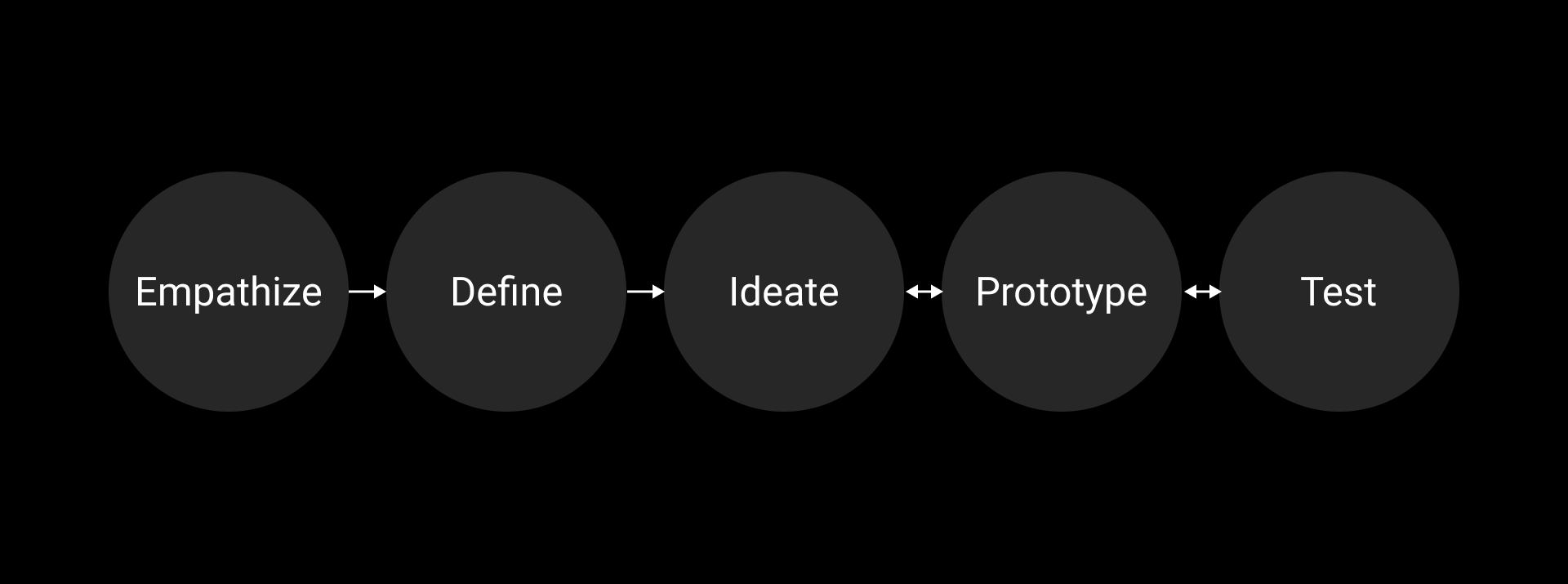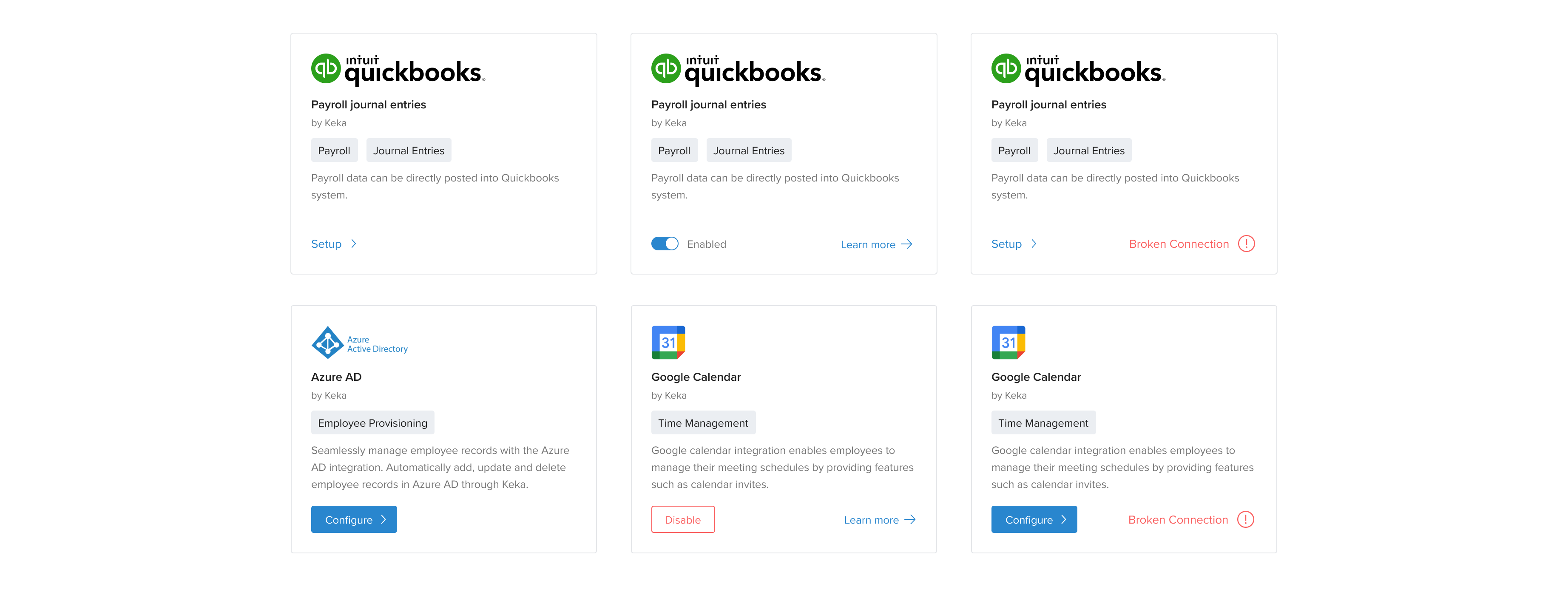

Keka HR is a prominent HRMS software provider in India. During my tenure as a User Experience Design Intern at Keka, I worked on a project that introduced a new way to visualize, control, and manage company-wise integrations within the product.
• User Research
• UX Design
• Internship
• Apr - June 2023
• Figma
• Miro
The product team conducted extensive research and identified the
need for automation within the Azure AD space from the HR Portal.
While attempting to implement this, the following issues were
uncovered:
1. Customization Complexity:
Unlike previous integrations (e.g., Google Calendar and Microsoft
Teams), Azure AD integration requires more customization. This added
complexity provides companies with greater flexibility but also
presents challenges in configuration.
2. Security Management: While
previous integrations posed no security concerns, setting up Azure
AD integration requires robust security measures to control and
restrict employee access effectively.
3. Connectivity Issues:
Users often faced problems with previous integrations disconnecting
on the backend, leaving them unaware of integration status.
The solution involves providing users with more customization options during integration setup, enhancing integration status monitoring, enabling on-demand activation or deactivation of integrations, and introducing a process that adds a level of complexity when a new employee joins. This complexity helps the HR department make more informed decisions.

As I delved deeper into the specifics of the task, We noticed a
disconnect in the current mental model of the Shortlists Enable
and Disable feature for integration.
For example, an employee in Sector A could be using different
tools for the same operation and may also switch between different
software as required. So, why do I need to go through multiple
steps of signing out and in of tools?
• Other platforms such as Remote, Deel, and Asana excel in the
same aspects by offering customization and approval barriers to
control the inflow of employees.
• Most of them include additional dedicated steps for
personalization, allowing users to specify when and where to add
employees.
• Additionally, all of these platforms provide a monitoring page
for HRs to review their current and previous records of
integration usage.
KEKA is a fast-growing company and known for its quick updates and staying on top of current trends. During the year, KEKA plans to release over 20+ (in addition to the existing 5) integrations. To adhere to this goal, need to consider UX issues related to a higher number of integrations (i.e., how users will scroll through all the integrations to find a specific one).

Considering multiple personas and various factors, including business goals, the Integration card on the apps page had to be reimagined. Multiple versions were designed to test and understand both good and bad scenarios. Additionally, a search and switch feature was added to streamline the integration filtering process.

Considering multiple personas and various factors, including business goals, the Integration card on the apps page had to be reimagined. Multiple versions were designed to test and understand both good and bad scenarios. Additionally, a search and switch feature was added to streamline the integration filtering process.


Status is used to indicate the current state of an integration, and tags are employed to identify the purpose of integrations and classify them.

Users are provided with information on integrations, product links, and help to help them make informed decisions.

If a user is not satisfied with the default security preferences, they can choose preferences that align with their company.

Explore and access current and past records of integration logins and registrations.

Users can review employee integration requests at various times, such as during onboarding and when managing integration licenses.
1. Designing for a wide user base requires eliminating biases and utilizing data-driven decision-making.
2. Involving product and business teams is essential in the design process, and the most significant work occurs before reaching the high-fidelity stage.